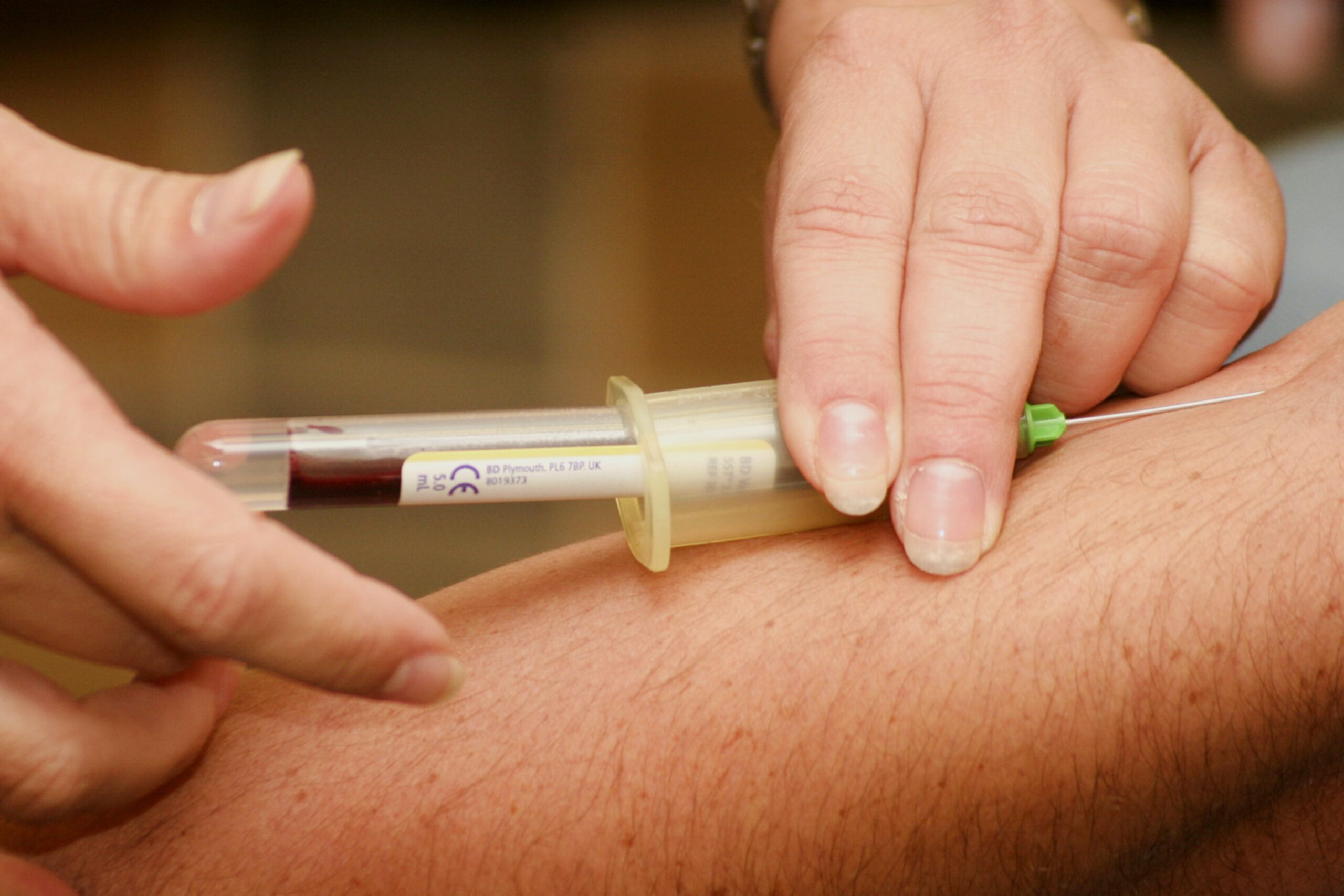Hey there, have you ever wondered about the complications that can arise from having an enlarged prostate? Well, fret no more! In this article, we'll take a closer look at the various complications that can occur when your prostate decides to overgrow its bounds. From urinary problems to sexual dysfunction, we'll cover it all, helping you gain a better understanding of what to expect and how to manage this common condition. So, sit back, relax, and let's explore the world of an enlarged prostate together!
Understanding Enlarged Prostate
Enlarged prostate, also known as benign prostatic hyperplasia (BPH), is a condition where the prostate gland grows in size and can cause various complications. The prostate gland is a small organ located below the bladder, and its main function is to produce seminal fluid that nourishes and transports sperm. As men age, it is common for the prostate gland to enlarge, and this can lead to several complications that can significantly impact one's quality of life.
Definition of Enlarged Prostate
Enlarged prostate refers to the abnormal growth of the prostate gland, causing it to exert pressure on the urethra. This increased pressure can lead to urinary problems and potential complications.

Causes of Enlarged Prostate
The exact cause of an enlarged prostate is still not fully understood. However, age and hormonal changes are believed to play a significant role. As men grow older, hormonal imbalances occur, particularly involving the sex hormones testosterone and estrogen. These hormonal changes can lead to the growth and enlargement of the prostate gland, resulting in BPH. Other factors that may contribute to the development of an enlarged prostate include genetics and lifestyle choices.
Complications of Enlarged Prostate
An enlarged prostate can cause several complications that can have a significant impact on one's health and well-being. It is important to be aware of these complications to seek early diagnosis and appropriate treatment. Some common complications include:
Bladder Damage
When the prostate gland enlarges, it can obstruct the normal flow of urine through the urethra. This obstruction can put additional strain on the bladder as it tries to overcome the resistance and expel urine. Over time, this extra pressure can weaken the bladder muscles, leading to decreased bladder function and increased risk of bladder damage.
Kidney Damage
In severe cases, an enlarged prostate can cause obstruction of both the urethra and the kidneys' urine drainage system. This obstruction can lead to a build-up of urine in the kidneys, resulting in kidney damage. If left untreated, kidney damage can progress and potentially lead to kidney failure.
Urinary Tract Infections (UTIs)
When urine is not properly expelled from the bladder due to an enlarged prostate, bacteria can multiply and cause urinary tract infections. The stagnant urine becomes an ideal environment for bacteria to thrive, leading to symptoms such as painful urination, frequent urination, and pelvic discomfort. UTIs can be recurrent and require prompt medical attention to prevent further complications.
Bladder Stones
The stagnant urine caused by an enlarged prostate can also contribute to the formation of bladder stones. These stones are mineral deposits that can develop in the bladder, causing pain, urinary symptoms, and potentially leading to bladder infections. Bladder stones often require medical intervention for their removal.

Diagnosing an Enlarged Prostate
Diagnosing an enlarged prostate often involves a combination of medical examinations and tests. Some common diagnostic methods include:
Digital Rectal Examination (DRE)
During a digital rectal examination, a physician inserts a gloved finger into the rectum to feel the size and condition of the prostate gland. This physical examination can help determine if the prostate is enlarged and detect any abnormalities.
Prostate-Specific Antigen (PSA) Test
A PSA test measures the levels of PSA, a protein produced by the prostate gland, in the blood. Elevated PSA levels may indicate the presence of an enlarged prostate or other prostate-related conditions. However, it is important to note that an elevated PSA level does not necessarily imply prostate cancer.
Urinalysis
Urinalysis involves analyzing a urine sample to check for any abnormalities, such as the presence of blood or infection. This test can provide valuable information about the health of the urinary system and help identify any complications associated with an enlarged prostate.
Prostate Ultrasound
A prostate ultrasound uses sound waves to create images of the prostate gland. This imaging technique allows healthcare professionals to assess the size of the prostate and detect any irregularities or abnormalities. A prostate ultrasound is a non-invasive and painless procedure that is often used to confirm the diagnosis of an enlarged prostate.
Symptoms of an Enlarged Prostate
While an enlarged prostate may not always cause noticeable symptoms, it can lead to various urinary problems. Some common symptoms associated with an enlarged prostate include:
Frequent Urination
An enlarged prostate can put pressure on the bladder, leading to increased urinary frequency. This means needing to urinate more frequently, including waking up multiple times during the night to go to the bathroom.
Difficulty Starting or Stopping a Stream of Urine
As the prostate gland grows, it can obstruct the urethra and interfere with the normal flow of urine. This can result in difficulty initiating urination or experiencing a weak stream. Some individuals may also find it challenging to fully empty their bladder.
Urgency to Urinate
The increased pressure caused by an enlarged prostate can create a sense of urgency to urinate. This sensation of needing to urinate immediately can be disruptive and cause anxiety, especially if restroom facilities are not readily available.
Inability to Completely Empty the Bladder
Due to the obstruction caused by an enlarged prostate, some individuals may struggle to fully empty their bladder. This can result in residual urine remaining in the bladder, leading to discomfort and an increased risk of urinary tract infections.

Bladder Damage as a Complication
One of the potential complications of an enlarged prostate is bladder damage. The obstruction caused by an enlarged prostate hinders the normal flow of urine from the bladder. Over time, this can lead to additional strain on the bladder muscles, causing them to weaken and potentially leading to bladder damage.
How an Enlarged Prostate Can Lead to Bladder Damage
When the prostate gland enlarges, it exerts pressure on the urethra, which is the tube through which urine passes out of the body. This pressure can cause the bladder muscles to work harder to overcome the resistance, leading to increased muscle fatigue and eventual weakening. As the bladder muscles weaken, they may not contract effectively during urination, resulting in incomplete emptying of the bladder. The stagnant urine remaining in the bladder can increase the risk of urinary tract infections and contribute to bladder damage.
Symptoms of Bladder Damage
Bladder damage caused by an enlarged prostate can manifest in various ways. Common symptoms include pain or discomfort in the lower abdomen, frequent urinary tract infections, recurrent urinary urgency, and an increased need to urinate during the night. Some individuals may also experience difficulty initiating or completing urination.
Prevention and Treatment of Bladder Damage
Preventing bladder damage associated with an enlarged prostate involves managing the condition effectively. Regular medical check-ups and adhering to the prescribed treatment plan are crucial. Treatment options may include medication to reduce the size of the prostate gland or surgery to remove or reduce the excess tissue. By effectively managing the underlying cause of the bladder obstruction, it is possible to minimize the risk of bladder damage. Additionally, practicing good bladder habits, such as urinating regularly and fully emptying the bladder, can help maintain bladder health and prevent further complications.
Kidney Damage as a Complication
In severe cases, an enlarged prostate can cause obstruction not only in the urethra but also in the urine drainage system of the kidneys. This obstruction can lead to a build-up of urine in the kidneys, resulting in kidney damage.
How an Enlarged Prostate Can Lead to Kidney Damage
The kidneys play a crucial role in filtering waste products from the blood and producing urine. When an enlarged prostate obstructs the drainage of urine from the kidneys, urine can accumulate and cause distension of the renal pelvis, which is the area where urine collects before entering the ureter. The increased pressure and build-up of urine can lead to kidney damage over time.
Symptoms of Kidney Damage
Symptoms of kidney damage caused by an enlarged prostate can include back or flank pain, blood in the urine, recurrent urinary tract infections, and changes in urinary patterns. Some individuals may also experience symptoms such as fatigue, swelling in the legs or feet, and changes in appetite.
Prevention and Treatment of Kidney Damage
Preventing kidney damage associated with an enlarged prostate is crucial for maintaining overall health. Regular medical check-ups can help detect any signs of kidney dysfunction at an early stage. Treatment options will depend on the severity of the prostate enlargement and the extent of kidney damage. In some cases, medication or minimally invasive procedures may be recommended to alleviate the obstruction and restore normal urinary flow. Surgical interventions may be considered for more severe cases. It is important to consult with a healthcare professional to determine the most appropriate treatment plan based on individual needs.
Urinary Tract Infections (UTIs) as a Complication
An enlarged prostate can also increase the risk of developing urinary tract infections (UTIs). When urine is not properly expelled from the bladder due to the obstruction caused by the enlarged prostate, bacteria can thrive, leading to infection.
How an Enlarged Prostate Can Lead to UTIs
The stagnant urine retained in the bladder due to an enlarged prostate provides a favorable environment for bacteria to multiply. The bacteria can then travel up the urinary tract, causing infection. UTIs can be recurrent and require medical attention to prevent further complications.
Symptoms of UTIs
Common symptoms of UTIs include a burning sensation during urination, frequent urination, urgency to urinate, cloudy or bloody urine, and pelvic discomfort. Some individuals may also experience fever, chills, and fatigue.
Prevention and Treatment of UTIs
Preventing UTIs associated with an enlarged prostate involves managing the underlying cause effectively. Treatment options may include medication to reduce the size of the prostate gland or surgery to alleviate the obstruction. Additionally, practicing good hygiene and urinary habits can help reduce the risk of UTIs. This includes drinking plenty of water, urinating regularly, and fully emptying the bladder. If a UTI does occur, prompt medical attention is essential to prevent the infection from spreading and causing more significant complications.
Bladder Stones as a Complication
An enlarged prostate can contribute to the formation of bladder stones. These are mineral deposits that develop in the bladder and can cause pain, urinary symptoms, and potential bladder infections.
How an Enlarged Prostate Can Lead to Bladder Stones
The stagnant urine resulting from an enlarged prostate creates an environment conducive to the formation of bladder stones. The minerals present in the urine can precipitate and crystallize, forming stones over time. The obstruction caused by the enlarged prostate can also contribute to the stone formation by preventing the natural flushing and expulsion of the minerals from the bladder.
Symptoms of Bladder Stones
Symptoms of bladder stones may include lower abdominal pain, frequent urinary tract infections, blood in the urine, discomfort during urination, and changes in urinary patterns. Some individuals may also experience urinary urgency and incomplete bladder emptying.
Prevention and Treatment of Bladder Stones
Prevention of bladder stones associated with an enlarged prostate involves effectively managing the underlying condition. This may include medication to reduce the size of the prostate or surgery to alleviate the obstruction. Additionally, maintaining good hydration and practicing regular bladder emptying can help prevent the formation of bladder stones. If bladder stones do develop, treatment options may include medication to dissolve the stones or surgical intervention to remove them. It is essential to seek medical advice for the most appropriate treatment plan based on individual circumstances.
Prevention of Complications from Enlarged Prostate
While an enlarged prostate can lead to various complications, there are steps you can take to reduce the risk and minimize their impact on your health. Some preventive measures include:
Healthy Lifestyle Choices
Maintaining a healthy lifestyle can positively impact prostate health and reduce the risk of complications. Regular exercise, a balanced diet rich in fruits and vegetables, and maintaining a healthy weight can help support overall well-being.
Regular Medical Check-ups
Regular medical check-ups are crucial for monitoring prostate health and identifying any potential complications. Schedule routine visits with your healthcare provider to have your prostate assessed and discuss any concerns or changes in urinary patterns.
Adherence to Treatment Plan
If you have been diagnosed with an enlarged prostate, it is essential to follow the prescribed treatment plan. This may include medication and lifestyle modifications recommended by your healthcare provider. Adhering to the treatment plan can help manage symptoms, prevent complications, and improve overall prostate health.
Impact on Quality of Life
An enlarged prostate can have a significant impact on one's quality of life. The complications and symptoms associated with this condition can cause physical discomfort and pain, affect sexual health, have psychosocial consequences, and incur financial implications.
Physical Discomfort and Pain
The urinary symptoms resulting from an enlarged prostate, such as frequent urination and the inability to empty the bladder completely, can cause physical discomfort and pain. This can disrupt daily activities, affect sleep patterns, and lead to decreased overall well-being.
Impact on Sexual Health
An enlarged prostate can also affect sexual health. Some individuals may experience erectile dysfunction or difficulties with ejaculation due to the obstruction and changes in the urinary system. These sexual difficulties can impact one's self-esteem and relationships, adding emotional stress to the physical complications.
Psychosocial Consequences
Living with an enlarged prostate can have psychosocial consequences. The constant need to be near restroom facilities, the embarrassment of urinary symptoms, and the impact on sexual health can all contribute to feelings of anxiety, depression, and decreased self-confidence. It is important to address these psychological aspects and seek support if needed.
Financial Implications of Treatment
Treatment for an enlarged prostate, including medications, surgeries, and regular medical check-ups, can result in financial implications. It is crucial to consider the potential costs associated with managing this condition. Discussing insurance coverage options and financial assistance programs with healthcare providers can alleviate some of the financial burdens.
In conclusion, understanding the complications of an enlarged prostate is essential for early detection and appropriate management. By recognizing the potential complications such as bladder and kidney damage, urinary tract infections, and bladder stones, individuals can take proactive measures to prevent and address these issues. Regular medical check-ups, adherence to treatment plans, and making healthy lifestyle choices can help manage the condition effectively and minimize its impact on one's quality of life. Remember to consult with a healthcare professional for personalized advice and guidance regarding an enlarged prostate and its potential complications.

